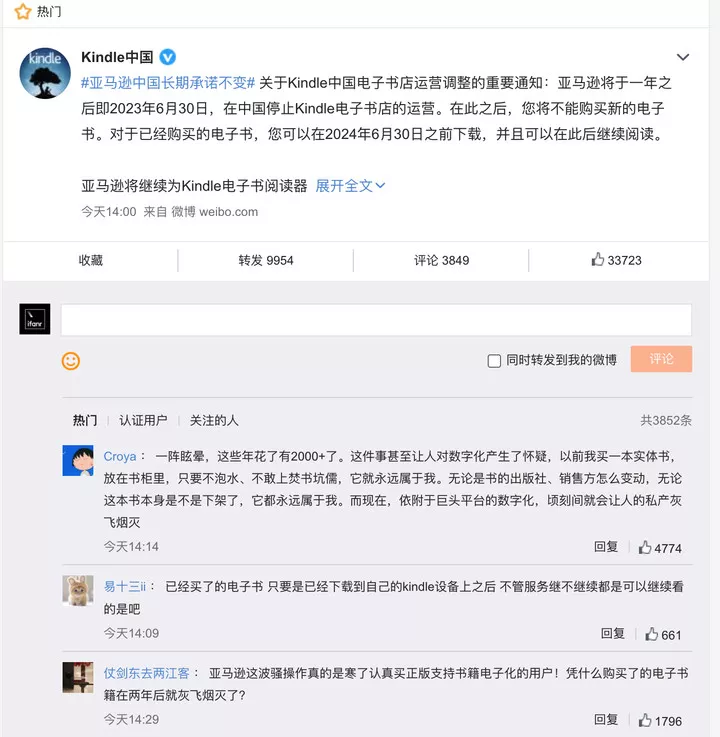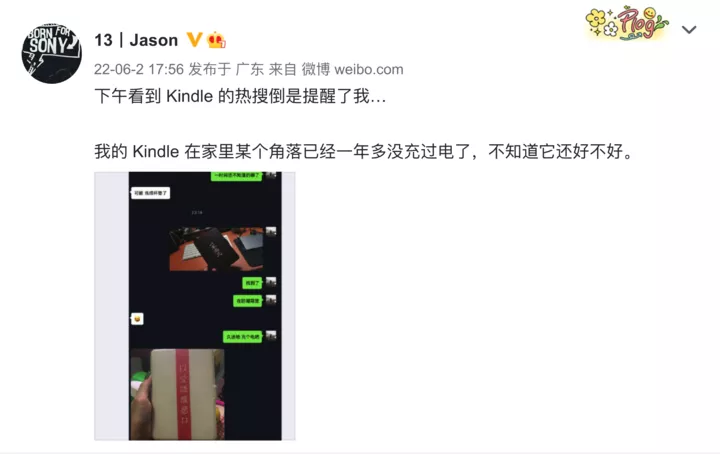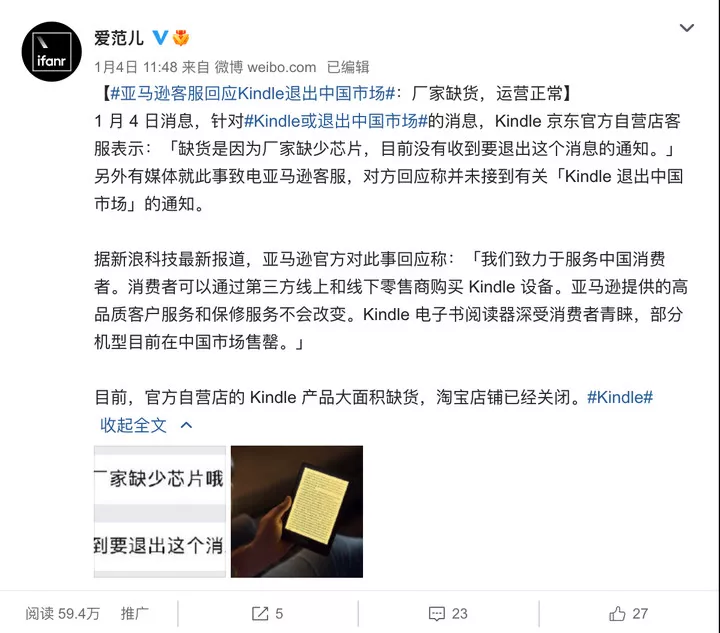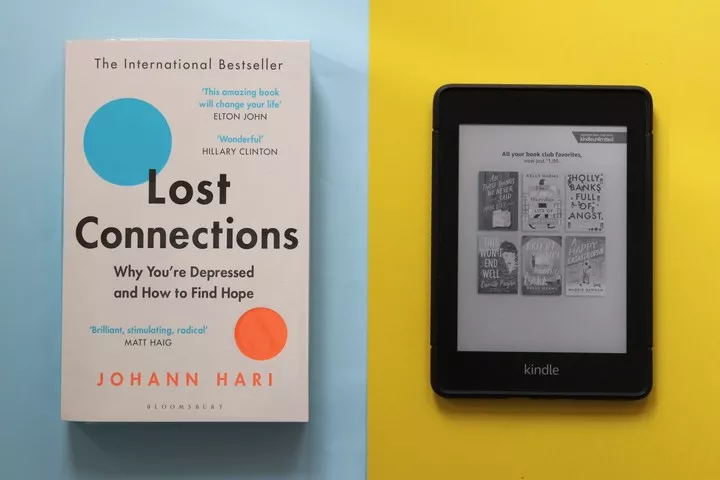The Kindle is the 'elevator' of human progress, an elevator that's about to lose power in this country.

When everyone is still torn about what to buy for the 618 shopping festival, Amazon China has suddenly released an announcement that all e-book lovers are not expecting - Kindle China is going to make a big adjustment, including the suspension of e-book sales and a big supply of Kindle e-readers.
A detailed announcement from Amazon says that Amazon will suspend supplies of Kindle e-readers to resellers from now on.

The Kindle China eBook service will remain in operation for one year and the download service for two years, after which time it will no longer be possible to download content from the cloud, and users who have purchased Kindle eBooks can apply to return them in accordance with the Kindle eBooks Return Policy.
In the long run, it's basically a foregone conclusion that the Kindle is going to cease operations in China.
Kindle China, which entered China in 2013, has not yet waited for its 10th anniversary and is leaving the Chinese market first, which is undoubtedly an earthquake for the Chinese e-book market.
Unexpected and justifiable
After the news of Kindle's discontinuation in China was released, e-book lovers' remembrance of Kindle soon broke out on Weibo and friends.

Although people usually tease the Kindle as a "noodle cover" that eats dust, most of the readers would not want to scrap it and make it a "brick" that can only read.
It's just that we all know in our hearts that the day will come sooner or later when Kindle China is discontinued.

Some readers who remember the Kindle said that when they saw the news of the Kindle's discontinuation in China, they remembered that they still had a Kindle in a corner of their house that had run out of power.
Jonathan Ho, who witnessed the Kindle's journey to China, said he rarely bought books on the Kindle China store since 2 years ago, and gradually moved to WeChat Books and other e-book platforms to read.
The reason he gave up Kindle is also very simple, Kindle China's e-book layout, experience will always be a step behind than Kindle overseas or other local platform, it is difficult to say whether this is this is Amazon in China's water and soil, or its lack of attention to the Chinese market.

In January, there was news on the Internet that the Kindle was out of stock and suspected to be withdrawn from the Chinese market, when Amazon China responded that it was just a lack of chips produced by the manufacturer and that everything was operating normally, giving consumers peace of mind.
It's just that this pill has not been taken enough for six months, Kindle will officially stop the service in China, as to why, Amazon has not yet given a reasonable explanation.

The discontinuation of Kindle China confirms that the "Amazon + Kindle" hardware and software sales model has officially failed in China.
Before that, this model of relying on hardware and selling content services helped Amazon create a huge e-book empire that held the world's No. 1 market share for 16 years.
Constructed the ground rules for domestic e-books
The Kindle was launched with the idea of "putting the bookstore in your pocket" - what consumers get when they buy a Kindle is not just a reader, but more importantly, access to books at the Amazon Cloud Store anytime, anywhere.
Just like the 'iPod + iTunes', consumers are buying this complete set of services, and this is the formula for Amazon's success in beating out other competitors and rising quickly in the early days of the e-book market.

The Kindle was released in 2006 and quickly became a hit in the United States, sweeping the American digital publishing market and setting off a true paperless revolution. 5 years later, Amazon came to China with the same rules of success, at this time the Chinese e-book market is still a barren, Amazon wants to replicate the success of the Kindle in China, the most important task is to first establish the rules of the market.
"Selling e-books" is much more complicated than "buying e-books" because it means a bloody showdown between online booksellers and offline publishers, channels and authors around interests, an irreconcilable conflict between the old and new forces.

Before Amazon, no manufacturer had been able to strike a balance in a complex chain of interests that made everyone happy.
Sony, which launched its e-reader before the Kindle, was unable to come up with a reasonable distribution plan, leading to resistance from publishers and authors alike to launch e-book versions, leaving the Sony Reader with an embarrassing lack of hardware but no books to read.
This is the path that traditional publications must take to move to digital publishing. Whether it's going from CDs to mp3s, DVDs to streaming, or physical books to e-books, it's an arduous tug-of-war.
And it is Amazon that has 'scalded' the bumpy road of the Chinese e-book market.

In fact, China has long been aware of the hot e-book market. 2007 after the release of Kindle, its rivals across the ocean soon emerged, Han Wang, Founder, Newman and other companies have launched their own e-reader products, and began to build their own content platform.
It's just that building the platform is far more difficult than these vendors can imagine.
According to a report by China Business News, Hanvon announced in 2010 that it had invested 30 million to build an e-book city and reached a 20/80 partnership with publishers, but in the end consumers did not buy the scarce content resources and Hanvon fell into two consecutive years of losses.

And like Dangdang, Jingdong these books online retail giants although the flag of the book electronic, but the slow pace of transformation has always failed to make too many waves, some paper bestsellers for a long time can not be electronic, in the final analysis is still in love with the old days.
But how easy is it to let go of the old days? As mentioned earlier, this involves too many scattered interests, want to integrate them, together for the sake of the electronic book and put down the fight, need this integrator has a strong channel, enough money and strong spirit, and this is for the then Dangdang, Jingdong or Shanda Book City is obviously a super problem.
It was only in 2011, when the Kindle China team entered China, that traditional publishers slowly began to change in response to the digital wave.

The Kindle team visited four of China's most representative publishing houses, namely CITIC, Foreign Studies, Huashang and Commercial Press, in order to dispel the wariness of traditional publishers towards digital publishing and prove that digital publishing and traditional publishing should be a symbiotic relationship, not one against the other.
A key marketing strategy for the Kindle's China operation is to promote the simultaneous release of paperbacks and e-books to quell publishers' fears that the paperback business will take a hit.

The Kindle soon gained the support of a large number of publishers in China, and by the time the Kindle was officially released in China, it had established partnerships with over 200 publishers, which played a significant role in the shift to electronic books in China.
According to the "2012-2013 China Digital Publishing Industry Annual Report" data, the domestic e-book revenue reached 3.1 billion yuan, compared to the previous year's 1.65 billion yuan increased by 87.9%, the e-book industry officially entered a period of rapid development.

It is also in the Kindle into China, Palm Reader, Xiaomi and other brands began to build up with a certain scale of e-book city, e-books gradually took off the "pirated books" hat, consumers for e-book reading acceptance also began to slowly improve.
The 2021 Annual China Digital Reading Report shows that the overall scale of China's digital reading industry reached 41.57 billion yuan in 2021, with a per capita e-reading volume of 11.58 books, and e-books have turned from a niche choice in the past into a national reading demand.
But by this time, the Kindle, a trailblazer, was no longer synonymous with e-books, and access to books was becoming so convenient that it no longer mattered which one the digital bookstore actually came from.
Don't forget the well digger
It's a business story that's happened countless times before, and the Kindle is as enlightening as Yahoo, MSN, Airbnb, and Uber were when they brought us the convenience of digital services and set the business rules for a whole new market.
As these services take root in China, a new, more localized set of market rules will naturally evolve, leaving the pioneers to leave the market in disgrace if they can't keep up with the new rules.

Business is always cruel, and the Kindle has been driven away by newer and better e-book services just as offline physical books were driven away 10 years ago. It's just that when we pick up an e-book again, the Kindle as a well-digger should not be forgotten.
From kindle,Fire is born.
As the Kindle tagline says, lighting a prairie fire is the best way to mark the well-digger's encounter with China.